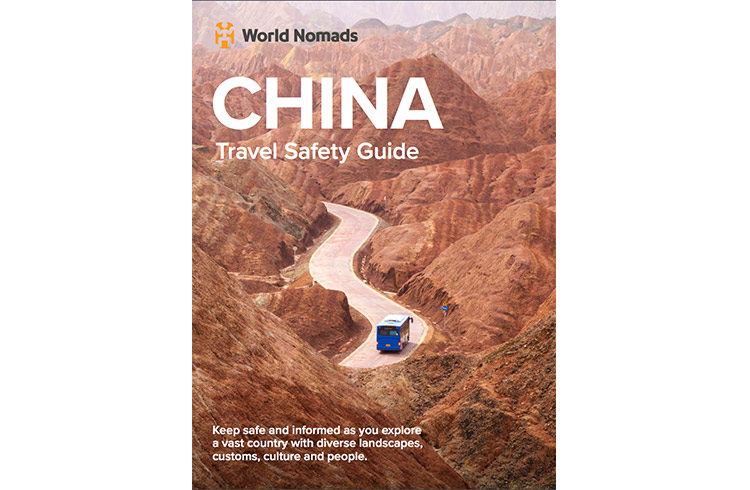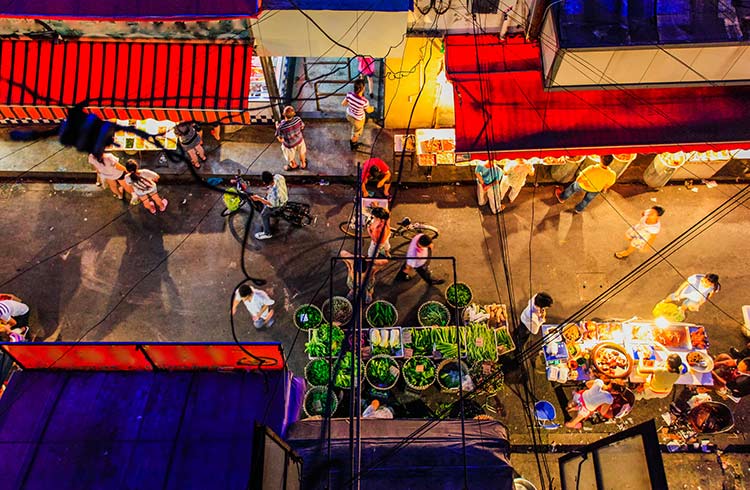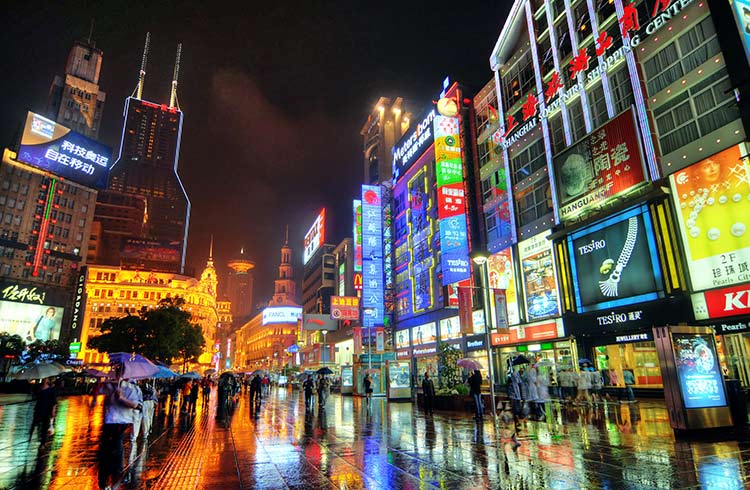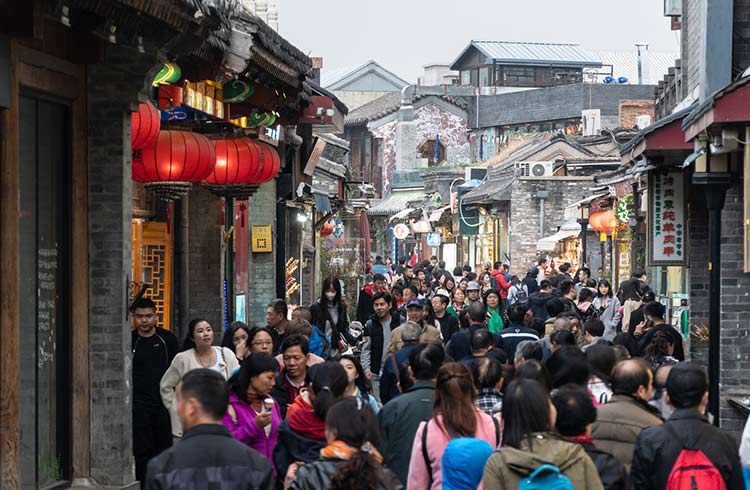How to Stay Healthy While Traveling Around China: 6 Tips
What vaccinations do you need before going to China, and what are the toilets like? Here's how you can stay healthy and keep your stomach happy while traveling in China.
 Photo © Getty Images/Jianhong Yin
Photo © Getty Images/Jianhong Yin
Here are just some of the potential health risks facing travelers to China, and how to protect yourself.
- Spitting in China
- Can I drink tap water in China?
- What to expect from toilets in China
- Pollution in China
- Poor building safety in China
- Vaccinations and diseases in China
- Listen to The World Nomads Podcast: China
Spitting in China
Chinese medical practice advises that swallowing phlegm is unhealthy. The Chinese Government has made several attempts over the years to curb spitting, and the SARS outbreak of 2002 decreased its incidence in major cities. However, it remains a common occurrence throughout the country; on the streets, in restaurants, on buses and planes, and you may hear a Chinese person coughing up regularly into a napkin. Sneezing without covering noses and mouths is also common.
Can I drink tap water in China?
Always boil water before drinking or brushing your teeth – tap water is not safe to drink in China. Instead of purchasing plastic water bottles, pack a water bottle with a filter. Avoid ice at restaurants, and ask for a sealed bottle of juice rather than a glass of juice – it may have been diluted with tap water.
What to expect from toilets in China
You’ll need to keep your sense of humor when you visit some of the toilets in China, whether they’re western-style toilets or not. Outside of your city hotel, squat toilets are standard across the country, and they are usually neither clean nor tidy.
Carry your own toilet paper or tissues around with you, tossing the used ones in the bucket next to the toilet when you’re done. If you forget or run out, you can buy toilet paper from shops, restaurants and bars.
Soap may not be provided either, so carry a small bottle of hand sanitizer with you. Public toilets are free or attract a small fee.
Download our free guide to staying safe in China

Pollution alerts in China
Asthma sufferers will want to plan ahead before arriving in China, as pollution is a serious problem. China's cars, population and many areas of construction account for it being home to 16 of the world's 20 most polluted cities, according to the World Bank. Those with allergies, skin conditions and problems with their throats may feel sick.
Efforts are being made to create vast green corridors in many cities, and China is leading the way in a quest to become the world’s renewable energy superpower. In the meantime, high levels of pollution affect cities such as Beijing, Shanghai, Guangzhou and Chengdu because of the sheer number of cars, and the incredible amount of manufacturing and construction activity going on.
Authorities issue red alerts if pollution levels are especially bad, and you can check Air Quality Index or Air Matters for real-time pollution readings.
If you do want to venture out on high-pollution days, do what the locals do and wear a mask. Be aware that flights in and out of cities can be canceled when pollution affects visibility.
Poor building safety in China
Your health might also be compromised by unsafe building work, including improperly constructed, uninsulated apartments, office buildings and more.
In November 2010, a fire at a 28-story Shanghai apartment building killed more than 50 people and injured 90 more. Unlicensed welders were charged with accidentally starting the blaze.
The incident came a year after another 13-story apartment building collapsed while still undergoing construction, killing a worker. The cause was a pile of excavated dirt next to the building.
In recent years, Shanghai, in particular, has experienced a sharp improvement in construction standards. The city built new subway lines for the 2010 World Expo, and there have been renovations to highways, the two airports and high rises.
Be mindful of areas undergoing construction, and be aware that fire codes are not always in place, which might include the absence of fire exits (or blocked exits), escapes, smoke detectors and sprinklers.
Health and hygiene in China
Be sure to allow yourself plenty of time to complete all the recommended vaccinations before leaving for China.
Rabies is a growing problem in China, and more than 2,000 people die from it here each year. If an animal (typically a dog) with rabies licks or bites you, treatment is much more of a hassle if you haven’t been vaccinated. Either way, seek medical treatment as soon as possible after contact with an animal you suspect is infected.
Medical facilities of an international standard are expensive (be sure to take out travel insurance) but available in major cities. In other areas, it can be a bit of a lottery and you may have to pay cash before any treatment is carried out.
Hygiene practices can be questionable, as can the level of medical training staff members have received. On a recent trip to China, one visitor on an organized tour reported having to get stitches at a local (and not terribly clean) medical center after having a fall. The doctor stitching him up was eating his lunch at the same time!
Here are some of the other health risks to watch out for:
Bird flu
Strains of the avian influenza virus continue to circulate in chickens. The only way to minimize your risk of exposure is to avoid live poultry markets in rural areas.
HIV/AIDS
Apart from taking obvious precautions during any sexual encounters, be sure to request the use of sterilized equipment if you need medical care outside major cities and insist on the use of new syringes (even if you have to pay for them).
Japanese Encephalitis (aka Encephalitis B)
This mosquito-borne illness is endemic in rural areas of southern China between June and August. Make sure this is one of the vaccines you get before you travel.
Malaria and dengue fever
The risk of contracting malaria is highest if you’re traveling to rural areas during the warmer months. Consider taking preventative medicine before and during your trip. Wearing long sleeves and using repellent and mosquito nets will reduce your risk of dengue fever.
Hand, Foot and Mouth Disease
HFMD outbreaks occur most commonly between March and October, and usually affect children less than 10 years old. Careful and frequent hand washing is the best prevention.
Typhoid
This serious bacterial infection spreads via contaminated food and water. Be sure you’ve been vaccinated against typhoid and take extra care with food and drink to be on the safe side. Drink only bottled water, eat only freshly cooked food (avoid buffets), and choose busy restaurants over quiet ones.
Hepatitis A
This virus infects the liver and can’t be treated. Pre-travel vaccination will give you effective protection.
Schistosomiasis (Bilharzia)
Avoid swimming in fresh water around the central Yangzi River (Cháng Jiāng) basin. If infected, symptoms may not show up for months or years, by which time internal organ damage is irreversible.
Listen to The World Nomads Podcast: China
Related articles
Simple and flexible travel insurance
You can buy at home or while traveling, and claim online from anywhere in the world. With 150+ adventure activities covered and 24/7 emergency assistance.
Get a quote


No Comments